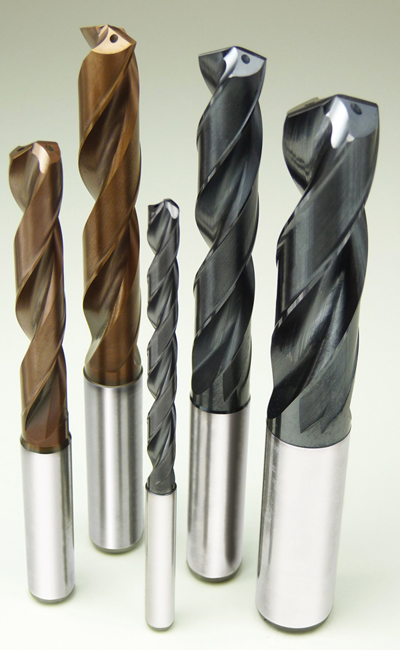EF Series Solid-Carbide Drills
EF Series Solid-Carbide Drills
Emuge Corp. announced the North American debut of an extensive line of high performance solid-carbide drills to further enhance its broad range of taps and threading tools.

Emuge Corp. announced the North American debut of an extensive line of high performance solid-carbide drills to further enhance its broad range of taps and threading tools. The new Emuge EF series drills are the result of extensive R&D and incorporate special geometry, proprietary carbide grades and a PVD coating design that reportedly is unique to the industry. The result is three to five times faster penetration rate than conventional carbide and cobalt drills, in addition to exceptional, high quality threads and longer tool life.
"We are excited to roll out this major introduction to the U.S. and Canadian marketplace," said Bob Hellinger, president of Emuge Corp. "It makes perfect sense for Emuge to have a drill product line to complement our leading line of taps and thread mills and it provides our customers the best holemaking solutions for their tapping applications."
In addition to the drill line introduction, beginning in the fourth quarter of 2015, Emuge will be offering complete grinding/reconditioning services for all drill products at their West Boylston, Mass., facility.
The EF drills, engineered and made by Emuge in Germany, feature a double-margin flute design for added stability and rounder/straighter holes. A unique flute construction enables superb chip evaluation, and a self-centering design allows drilling in one shot, eliminating peck cycles and pre-spot operations. Emuge drills are made of a special sub-micron grain carbide grade for extraordinary abrasion resistance and durability, and a unique multi-layer PVD coating resists chipping/cracking for exceptionally long tool life.
A full range of product is available in 3XD, 5XD, and 8XD drill styles in solid & coolant-fed designs for convenience and application versatility. More than 2,000 standard SKUs will be stocked in Emuge's West Boylston facility.





